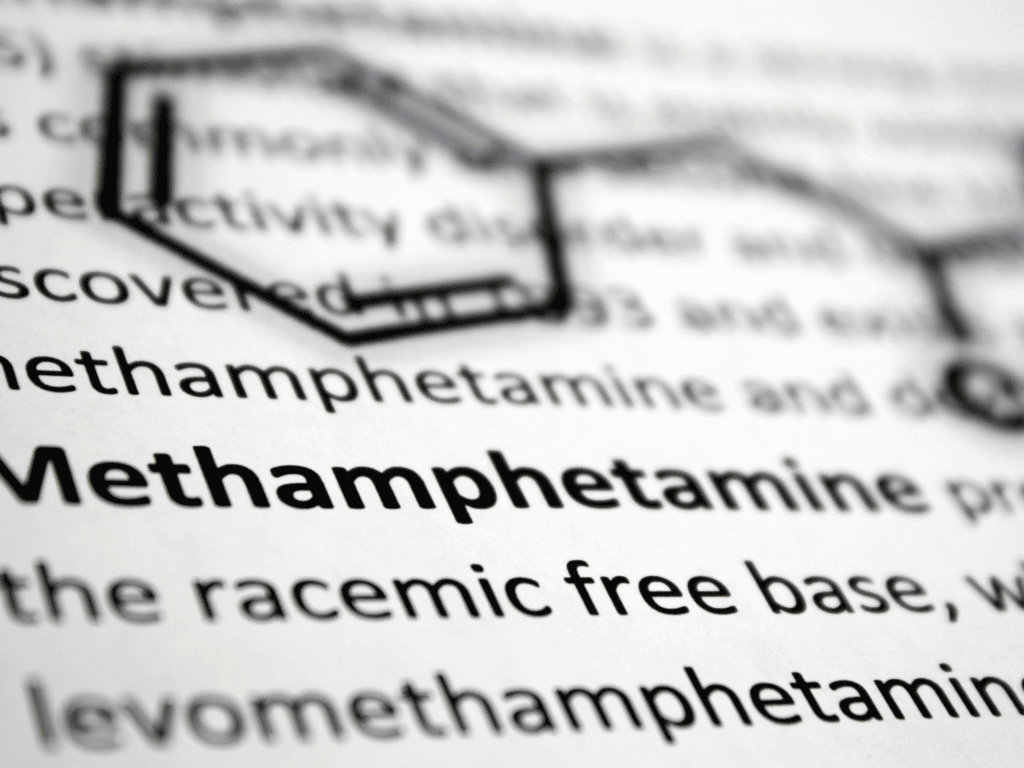Methamphetamine is a stimulant, and produces intense feelings of excitement and exhilaration in users. Those who use meth report feelings of increased energy, invincibility, and confidence, and feel like there’s nothing they can’t do. These feelings are the result of a flood of dopamine to the user’s brain, which can be produced by smoking, snorting, shooting, or ingesting the drug. The high from meth generally lasts from 6-8 hours, but can vary depending on the quality and quantity of the substance taken.
Although the immediate results of meth may be pleasurable, continued abuse can cause serious harm to the user. Methamphetamine takes over people’s lives, and once addicted, everything else becomes secondary to getting and using meth. Relationships are neglected, family is estranged, jobs are lost, and many addicts eventually become incarcerated.
Effects of Meth
Short term meth use can result in weight loss, irregular sleep patterns, mood swings, and erratic, unpredictable behavior. The increased flood of dopamine can cause the user to develop an expectation of this unnatural feeling of reward, and cause feelings of dissatisfaction and boredom during situations and activities that were once fulfilling. Life becomes boring and meaningless without meth.
Continued use of meth can result in serious, life threatening consequences. Sleep deprivation can cause auditory and visual hallucinations, causing users to see and hear things that just aren’t there. This condition is often referred to as “Meth Psychosis.” Increased heart rate, blood pressure, irregular heartbeat, and damaged blood vessels are also common, which can cause Alzheimer’s Disease and stroke. If smoked, users often experience lung damage.
Ingredients
Because meth is “cooked” in makeshift laboratories- oftentimes by users themselves- the chemicals used to make the drug are often dangerous and extremely volatile. These chemicals include acetone (nail polish remover), lithium (used in batteries), ammonia (used in household cleaners and fertilizer), and hydrochloric acid (used to remove rust).
These ingredients come together to produce one meth’s most infamous side effects, known as “Meth Mouth.” The American Dental Association (https://www.ada.org/en/member-center/oral-health-topics/meth-mouth) describes this condition as “devastating.” Smoking meth will eat away at the enamel in user’s teeth, causing them to crack and chip. In addition to the teeth themselves, meth destroys the surrounding nerves, causing the gums to recede and unhealthy nerve and root exposure. Unlike some of the internal damage that remains unseen until it’s too late, meth mouth is clearly visible, and a clear indication of meth addiction.
Treatment for Meth Addiction
If you or someone you love is addicted to methamphetamine, then we can help. Northbound Treatment Services has a full staff of treatment and medical professionals, and offers our clients the tools they need to become successful in sobriety. In addition to inpatient residential programs, we have medical detoxification facilities, after care, and college/ career focused programs. We also offered continued support to our Alumni. Please contact one of our professionals at (866) 538-4356. We look forward to hearing from you, and helping you on your path to sobriety.
Author
-

President, CEO & Founder at Northbound Treatment Network
Paul Alexander is the CEO, President & Founder of Northbound Treatment Network in Newport Beach, California. He believes wholeheartedly in transformational leadership, organizational health and effective, fully integrated substance use disorder and mental health treatment. With over 27 years of experience in behavioral healthcare, Paul has extensive knowledge of “in vivo” treatment modalities, clinical development, operations, strategy, marketing and financial planning. He has been widely recognized for his development of collegiate-based residential treatment programs for students in recovery and authored a research study at The University of California confirming this modality’s effectiveness.
Paul’s comprehensive professional experience, willingness to innovate, and emphasis on organizational health are vital factors in Northbound’s continued success. Paul received his Certified Addiction Treatment Specialist training at Saddleback College in Mission Viejo, CA, and was awarded Outstanding Alumni Service Award in 2002. Paul holds a Bachelor of Arts degree in Criminology, Law and Society, Summa Cum Laude, from University of California, Irvine, and a Juris Doctorate degree from Loyola Law School of Los Angeles. Paul currently serves on The National Association of Addiction Treatment Providers (NAATP) board. In addition, he serves on The Family Recovery Foundation board and The CarePossible board in Orange County; both organizations are committed to raising funds for family recovery and treatment for former military personnel. Paul is in recovery himself and lives in Orange County with his wife Silvana and his two young sons, Noah and Dean.







